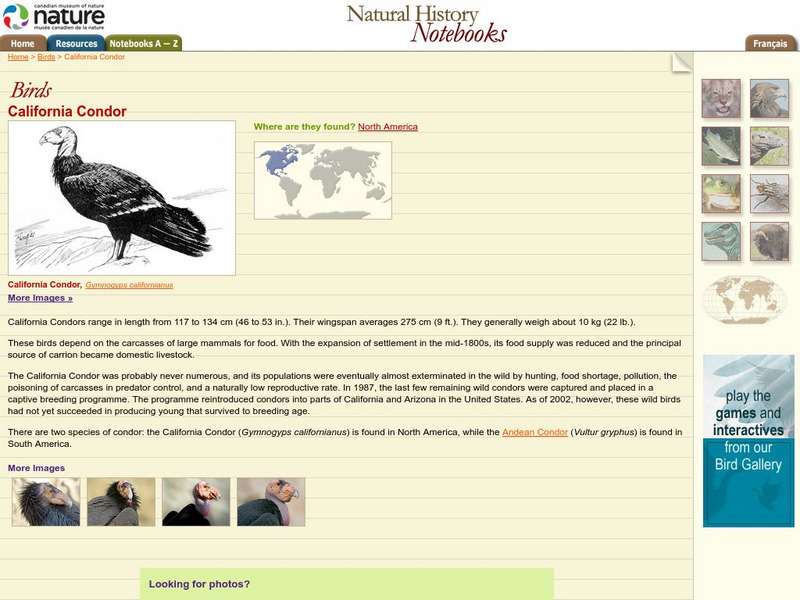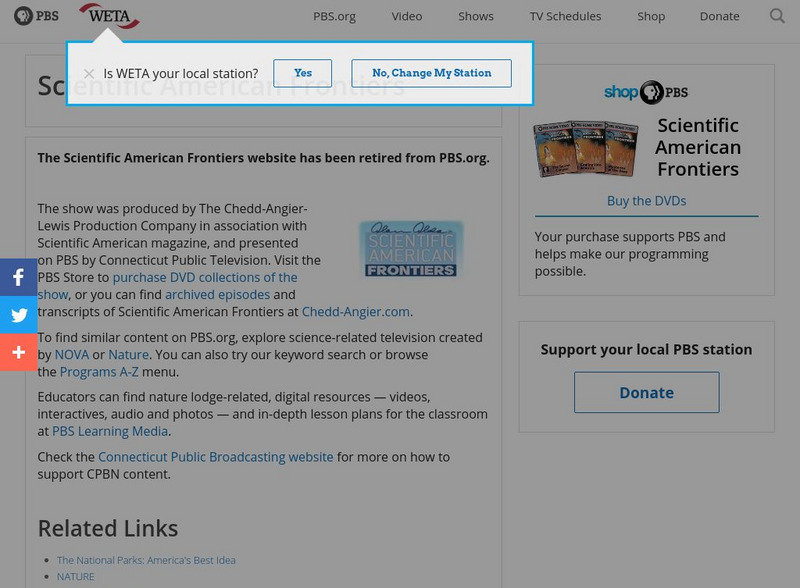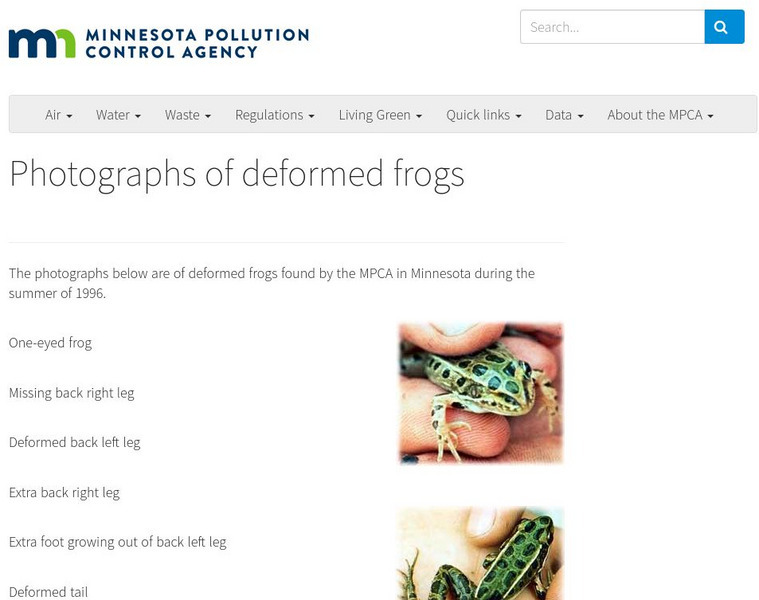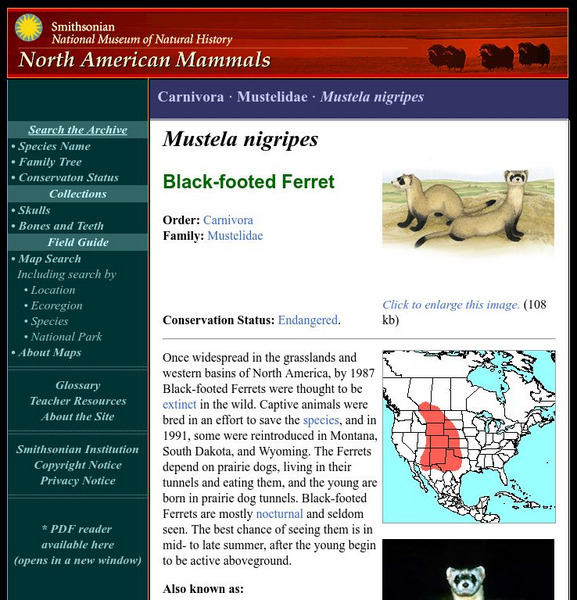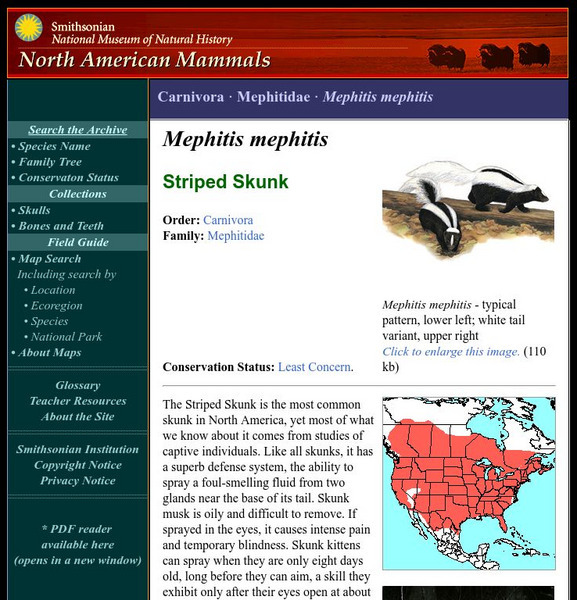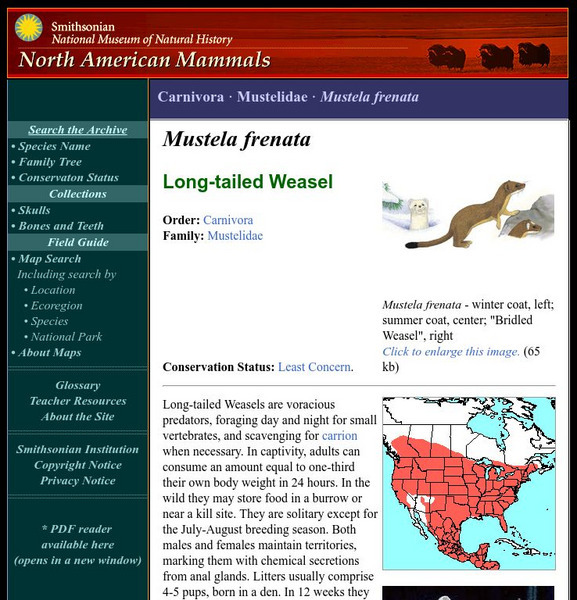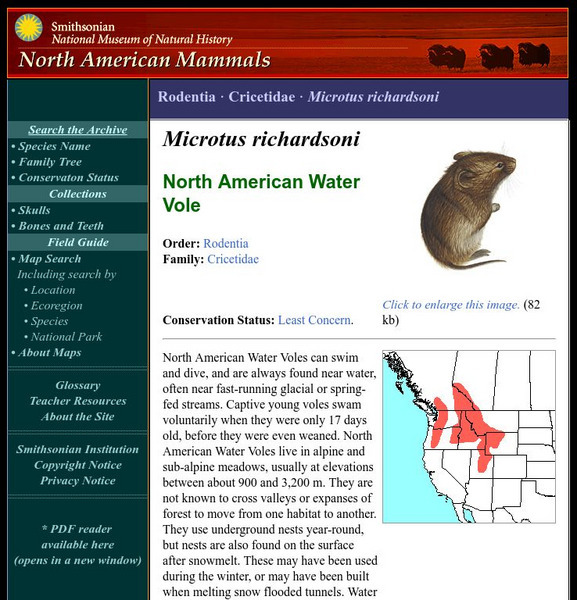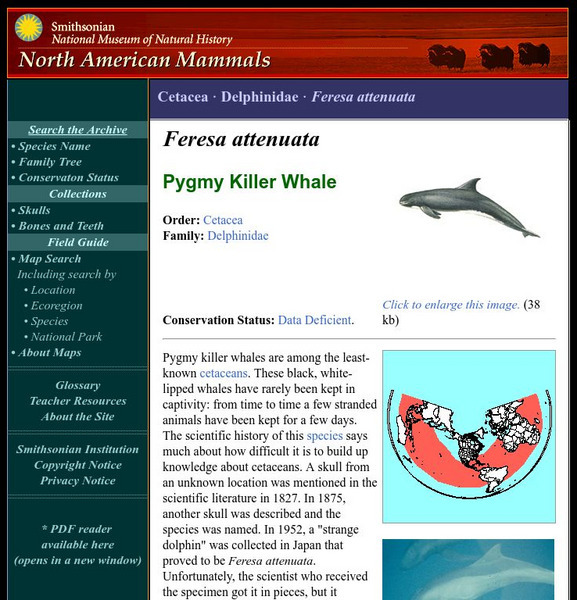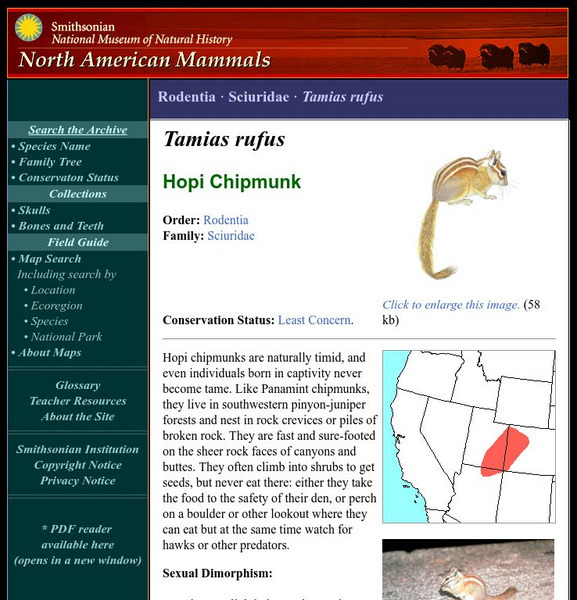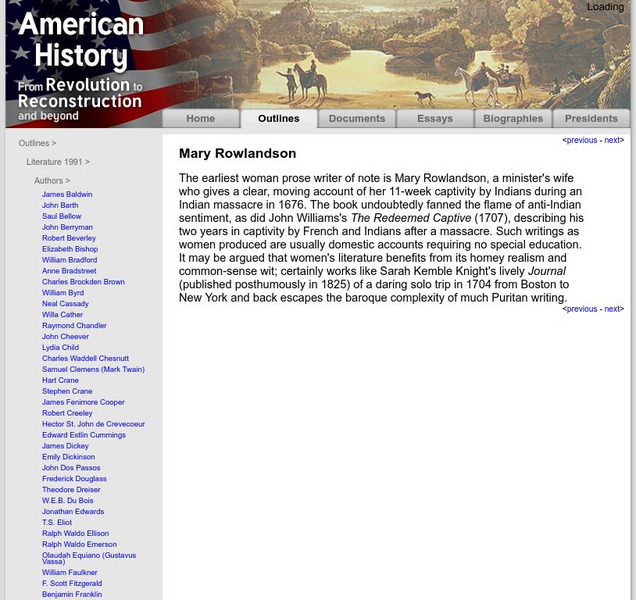NOAA
Noaa: Killer Whale
This site has a nicely detailed presentation of the Killer Whale. There are a couple of nice images included in the description.
PBS
Nh Pbs: Nature Works: Florida Panther
Learn more about the Florida Panther through this educational site. Students will find information about habitat, life cycle, diet, behavior and more of this small cat.
PBS
Nh Pbs: Nature Works: American Black Bear
Learn more about the American Black Bear through this informative resource. Gain a new perspective of this mighty animal when you learn more about its' habitat, behavior, characteristics, and more.
Khan Academy
Khan Academy: Glossary: Harnessing Sci and Educ for Biodiversity Conservation
All of the following terms relate to the topic of harnessing science and education for biodiversity conservation.
Curated OER
Saddam Hussein in Us Captivity
An account of Saddam Hussein's first encounter with an Iraqi judge and the reading of his rights under the new Iraqi court. This occurred on June 30, 2004 and was before his first actual court appearance on July 1, 2004.
Canadian Museum of Nature
Canadian Museum of Nature: California Condor
There are very few California condors left and the ones that are able to reproduce are in captivity as efforts are made to build up their population. The reasons for their decline are explained here and you can see some pictures of them.
PBS
Pbs Teachers: Scientific American: The New Zoos: Return to the Wild
Explore the history of zoos, and design blueprints for an enriched "new zoo." Research genetic problems in captive animals.
Blackdog Media
Classic Reader: The Argonauts of North Liberty by Bret Harte
Read the full text of the captivating novel "The Argonauts of North Liberty" by Bret Harte which is full of twists and turns.
Channel 4 Learning
Channel 4 Maths: Mathszone
Can you help Ben and Mai escape their captors and foil the robbers' getaway plan? Test your mathematical aptitude in this captivating, interactive, adventure game that uses a PDA/calculator to solve math clues. Students will activate...
Ducksters
Ducksters: Endangered Animals for Kids: Wildlife Conservation
Explore wildlife conservation including saving animal habitats, captive breeding, and tracking animal populations on this site.
Other
Minnesota Pollution Control Agency: Photographs of Deformed Frogs
Photographs of deformed frogs discovered in the wild and held in captivity from 1997 - 2006. Each picture has a brief explanation of the deformity.
ClassFlow
Class Flow: Pandas
[Free Registration/Login Required] This flipchart discusses pandas, their origins, captivity and breeding as well as their endangered status. Maps, web links and student assessment activities are included.
Smithsonian Institution
National Museum of Natural History: American Mammals: Cotton Deermouse
A medium-sized rodent with large ears and eyes, the Cotton Deermouse is dark golden-brown above with white underparts and feet. It is very similar to the white-footed Mouse, with which it breeds in captivity. Learn more about the...
Smithsonian Institution
National Museum of Natural History: American Mammals: Black Footed Ferret
Once widespread in the grasslands and western basins of North America, by 1987 Black-footed Ferrets were thought to be extinct in the wild. Captive animals were bred in an effort to save the species, and in 1991, some were reintroduced...
Smithsonian Institution
National Museum of Natural History: American Mammals: Margay
Margays are small spotted cats that closely resemble ocelots, but are about half the size and lack the ocelot's two prominent black cheek stripes. Margays are forest-dwellers and good climbers and jumpers, so agile that captives have...
Smithsonian Institution
National Museum of Natural History: American Mammals: Striped Skunk
The Striped Skunk is the most common skunk in North America, yet most of what we know about it comes from studies of captive individuals. Like all skunks, it has a superb defense system, the ability to spray a foul-smelling fluid from...
Smithsonian Institution
National Museum of Natural History: American Mammals: Long Tailed Weasel
Long-tailed Weasels are voracious predators, foraging day and night for small vertebrates, and scavenging for carrion when necessary. In captivity, adults can consume an amount equal to one-third their own body weight in 24 hours. Learn...
Smithsonian Institution
National Museum of Natural History: American Mammals: North American Water Vole
North American Water Voles can swim and dive, and are always found near water, often near fast-running glacial or spring-fed streams. Captive young Voles swam voluntarily when they were only 17 days old, before they were even weaned....
Smithsonian Institution
National Museum of Natural History: American Mammals: Pygmy Killer Whale
Pygmy killer whales are among the least-known cetaceans. These black, white-lipped whales have rarely been kept in captivity: from time to time a few stranded animals have been kept for a few days. Learn more about the Feresa attenuata,...
Smithsonian Institution
National Museum of Natural History: American Mammals: Hopi Chipmunk
Hopi chipmunks are naturally timid, and even individuals born in captivity never become tame. Like Panamint chipmunks, they live in southwestern pinyon-juniper forests and nest in rock crevices or piles of broken rock. Learn more about...
Teachers.net
Teachers.net: Alphabet Review Activities (Lesson Plan)
Site presents a myriad of fun filled activities which will enhance the student's identification of letters and their use in the context of words. Site uses games, songs and other captivating activities that will engage young children.
University of Wisconsin
University of Wisconsin: 5 Magnetism
From an online teacher demonstration book. Includes a description and explanation of five demonstrations on a variety of magnetism topics. Interesting and captivating demos.
Smithsonian Institution
Smithsonian Encyclopedia: American Inventors Jonas Salk
Focusing on a captivating photograph of Dr. Jonas Salk, this site gives a brief overview of his work as a noted research scientist and discoverer of the polio vaccine. There are also links to other American inventors' biographies.
University of Groningen
American History: Outlines: Mary Rowlandson
Brief biographical sketch of Mary Rowlandson, with an emphasis on her role in American literature.
Other popular searches
- Animals in Captivity
- Captivity Literature
- Marine Animals in Captivity
- Captivity Narratives
- Babylonian Captivity
- Animal Captivity
- Zoology Animals in Captivity
- Unicorn in Captivity
- Slogans on Animal Captivity
- Elephants in Captivity
- Narrative of Captivity







